This article was co-authored by Paul Chernyak, LPC and by wikiHow staff writer, Dev Murphy. Paul Chernyak is a Licensed Professional Counselor in Chicago. He graduated from the American School of Professional Psychology in 2011.
This article has been viewed 309,458 times.
Some boys can be—to put it mildly—inappropriate when it comes to breasts. Maybe you’ve experienced a guy leering or saying something suggestive or crude, and you just want it to stop! Unwanted male attention can be super uncomfortable, whether it’s at work, school, in public, or in your personal life. Fortunately, there are a few ways to react when a guy ogles you or says something inappropriate to let them know it's not OK. Keep reading: we’ve created a guide for dealing with boys who are obsessed with your boobs.
Things You Should Know
- Stay calm and walk away without responding. Most boys are looking for a reaction from you, so don't give it to them.
- Tell them the behavior is inappropriate and they're making you feel uncomfortable. Politely ask them to stop.
- If the behavior continues, report the boys to a trusted teacher, guidance counselor, or another person in authority.
Steps
At Work or School
-
1Walk away from the situation. If a boy is bothering you, calling you names, or trying to touch you, it can be hard to just walk away from the situation, but it's often an effective way to get him to leave you alone. It's likely he thrives on getting a reaction out of you, and if you don’t give it to him, he'll eventually get bored and hopefully leave you alone.[1]
- If you feel upset by something he did or said, consider visiting your guidance counselor to discuss what happened. Not only will this give you someone you can trust to talk about it, they may also talk to the boy directly, informing him of the consequences of such behavior.
-
2Ask the person bothering you to stop. He may be receptive if you approach him and politely ask him to cut it out. State clearly what he has said or done that has bothered you. For example: “When you talk about my boobs, it makes me feel very uncomfortable, and you don't have the right to talk to me like that.” Try to approach him when he’s by himself, if you feel comfortable. If he’s with a group of friends, he may be more likely to respond defensively.[2]
- It's possible that the boy who’s being inappropriate doesn't realize that what he’s saying or doing is inappropriate, and that it truly does bother you.
- You're not responsible for educating someone who's harassing you, though. Only approach him if you feel safe and comfortable doing so.
-
3Try to avoid being alone with anyone who's harassed you. If a particular boy has been bothering you and you don’t feel comfortable around him, try to avoid spending one-on-one time with him.[3] If you walk home from school or work, try to walk with other friends. When you see the boy who has been bothering you, try to join in the conversation of people around you so that he’ll see you’re with friends.
- It’s helpful to watch out for yourself and to turn to friends, family, and authority figures for support, but know that it’s not your responsibility to make sure he doesn’t bother you.
-
4Resist becoming physically aggressive with a harasser, if possible. It may be tempting to slap, kick, hit or punch a boy who is saying hurtful things to you, but provoking you may actually be what he wants. Getting violent could also be unsafe: if he’s a violent person himself, he might get aggressive back. Therefore, resist the urge to show him what you think physically. Tell him firmly to stop, or leave the situation.[4]
-
5Prepare what to say ahead of time. If you know a certain guy whom you have to be around (say, a fellow student or a coworker) is prone to acting inappropriately around you, come up with a plan for how to react if he does. Consider what you’ll say (if anything) and how you’ll act. This may not only help with the boy who’s bothering you, but with inappropriate guys in general.[5]
- You might say, firmly but politely, “I feel that what you said is inappropriate, and I would appreciate it if, in the future, you would avoid such comments.”
- If you catch someone staring at your breasts while you’re talking to him, stop talking until he realizes you’ve stopped and looks at your face to see why, then begin talking again as if nothing happened. More likely than not, this will get him to look at your face instead.
-
6Report the person bothering you. If you feel afraid for your safety, or the guy has ignored your polite requests to stop, don’t be afraid to tell human resources, a trusted teacher, or a guidance counselor about what is going on. If you’re a child or a teen, consider also telling your parents.[6]
- If the person you tell doesn’t seem to take you seriously, keep moving up the chain of command until someone does. If it seems that no one in your work or school will listen, you may need to go to the police.
- If you have to tell more than one person because you aren’t being taken seriously, be sure to report the authority who didn’t listen in the first place.
In Public
-
1Ignore unwanted stares or comments. If you’re in public, and you catch someone staring at your breasts, or if someone is making inappropriate comments about your breasts, do your best to ignore it. More than likely, they're trying to see if they can get a reaction out of you, and the best way to get them to stop harassing you is to show that you won’t react.[7]
- This is especially true if you feel that the person may physically assault you. In this case, the goal should be to get out of the situation as quickly as possible. Make your way to a very public space where there are lots of people around. If the person is threatening you, call the authorities immediately to tell them what’s going on.
- Ignoring harassment is hard, and frankly, the burden shouldn't fall on you to be the mature one here. But unfortunately, the quickest way to get a street harasser to lay off is usually to pretend they don't exist.
-
2Ask anyone who harasses you to leave you alone. If someone is making comments to you, and won’t let off even though you’ve ignored them, politely (but firmly) ask them to please leave you alone. It may be tempting to use strong language, but try to remain polite. If it's a stranger, it'll be difficult to predict how they might react to provocation, particularly if they’re the kind of person who thinks it’s OK to make inappropriate comments to women in the first place.[8]
- Say confidently, “Don’t talk about my body that way. That’s harassment.” If they persist, take your phone out of your bag or pocket, and tell them that you’ll call the police if they continue.
-
3Maintain confident body language. When someone is acting threatening, our natural reaction is often to shy away from them. But when standing up to a street harasser, you may be more effective if you take on a more confident stance: face the guy directly, stand up straight, maintain eye contact, and tell him to leave you alone.[9]
-
4Point out details about him so people around you can identify him. If someone’s harassing you, pick out something unique about him that will help friends or strangers around you to quickly pick him out of the crowd. Use this identifier in your sentence when you tell him to leave you alone. It’ll draw the attention of others around you, and he’ll almost definitely leave you alone.[10]
- For instance, if a boy wearing a bright green shirt says, “Hey! You have a nice rack!” look him in the eye, and loudly say, “You in the green shirt! Stop talking about my body! That’s harassment!”
- If you’re alone, and no one is around, pointing something out about that person that is unique may still help you to identify him later, if necessary, and it will show him that you’ve had a good look at him, so he isn’t completely anonymous.
In Your Personal Life
-
1Confront friends or loved ones about inappropriate behavior. If the person making you uncomfortable about your breasts is someone such as a boyfriend, husband, or friend, you should absolutely confront them about the issue. Explain to them that you know they probably don’t mean anything by it, but that their comments and actions make you feel uncomfortable and disrespected, and that you would really appreciate it if they would stop.[11]
- Try something like, “Hey Jess, I know you probably don’t mean anything, but it makes me a little uncomfortable when you say things about my breasts.”
- Be firm and confident during this discussion. You need him to understand that you’re really serious about what you’re saying.
-
2Be direct about what’s bothering you and why. When someone in your life regularly makes inappropriate comments about your body, be direct with him about exactly why it bothers you, and why it’s inappropriate. Explain to him each reason why it bothers you, and that you don’t feel that you should be objectified by the boys in your life.[12]
- Don’t expect him to read your mind. If you never say anything, he simply may not realize that what he’s saying is bothering you.
-
3Change the conversation. If he tries to bring up your breasts in conversation, quickly change the topic of conversation to something non-sexual. For example, you could talk about a new restaurant you’ve tried, or how great the weather has been lately.
- Over time, it may help him understand that you will not tolerate or encourage these remarks in any way.
-
4Consider removing him from your life. If, after one or more direct discussions about the matter, the guy continues to make remarks that disrespect you, it’s time to think of cutting ties with him. In the future, you might want to consider including guys in your life who respect you enough to honor your wishes and who don’t make inappropriate remarks about your body.[13]
- This may mean breaking up with him if he’s your boyfriend, or ceasing contact if it’s a friend.
- If it’s your husband or partner, and you don’t want to give up on the relationship, consider couple’s counseling. Having someone to help guide you and your partner through the reasons why you don’t want your body to be objectified may make it more clear for him.
References
- ↑ http://kidshealth.org/en/teens/bullies.html#
- ↑ https://www.kidpower.org/library/article/sexual-harassment-schools/
- ↑ http://kidshealth.org/en/teens/bullies.html#
- ↑ http://kidshealth.org/en/teens/bullies.html#
- ↑ https://kidshealth.org/en/teens/bullies.html
- ↑ http://www.cosmopolitan.com/career/advice/a2371/jerks-at-work/
- ↑ https://libcom.org/organise/dealing-with-street-harassment-guide
- ↑ https://libcom.org/organise/dealing-with-street-harassment-guide
- ↑ https://libcom.org/organise/dealing-with-street-harassment-guide
- ↑ https://libcom.org/organise/dealing-with-street-harassment-guide
- ↑ https://www.morethanabody.org/objectification-loving-relationships-incompatible/
- ↑ https://www.morethanabody.org/objectification-loving-relationships-incompatible/
- ↑ https://www.morethanabody.org/objectification-loving-relationships-incompatible/

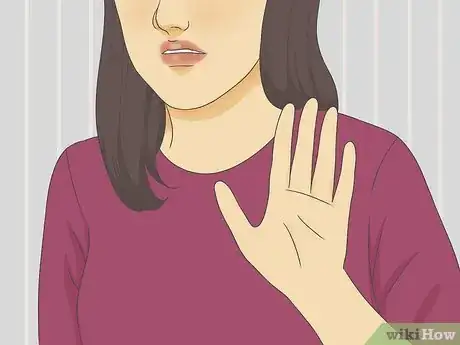

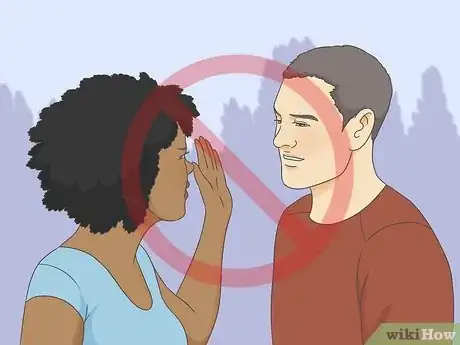









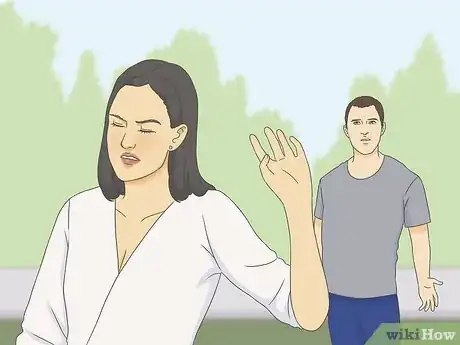

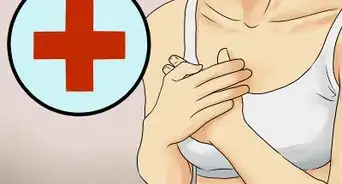
-Step-12-Version-3.webp)


-Step-23.webp)


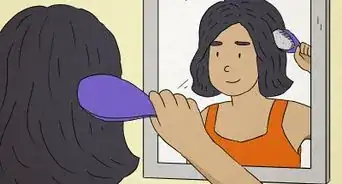
-Step-31.webp)
-Step-23.webp)














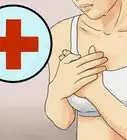
-Step-12-Version-3.webp)



































